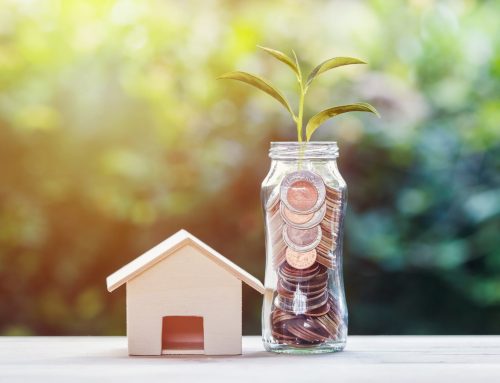Ready to start shopping for a home? With mortgage interest rates still extremely low, historically-speaking, there’s arguably never been a better time to buy. Plus, it’s spring, which is traditionally the time of year when the most people are looking to purchase a home. When you go house hunting, it’s important to keep a few things in mind, however. Up next are five key considerations that should be on every home shopper’s checklist.
1. The Location
You might find the best home in the world, but is it really going to work for you if it’s located more than an hour from your workplace, school, church, elderly parents, etc.? It’s one thing to find a great house. However, it’s another thing to find a great house within reasonable proximity to the places you need to go on a regular basis. Of all the factors you should consider when shopping for a home, zip code might be the most paramount.
2. The Neighborhood
If you’re looking for a home in a neighborhood or subdivision, it’s always wise to educate yourself a bit about this corner of the world. For example, what’s the crime rate in the area? Is the neighborhood you’re looking to purchase in prone to car theft or home break-ins? This kind of info is typically available with a quick Google search or by simply asking your real estate agent. Don’t fall so in love with a house that you fail to do your homework on its nearest surroundings.
3. Mother Nature
This one kind of seems like a no-brainer. If a house is located in a flood zone but you don’t wish to pony up for flood insurance each month, don’t buy it — regardless of how wonderful the home itself might be. And the same idea applies to any kind of bad weather, really. If you lay awake at night hyperventilating at the thought of a hurricane, don’t go house hunting at the beach. If you’re paranoid of tornadoes, you probably should stick with the Carolinas instead of moving to Kansas. You get the idea.
4. The Appliances
Don’t assume that a home will come equipped with certain appliances just because they were there at the time of the showing. Ask your real estate agent to find out which appliances the seller plans to leave. If there are certain appliances the seller doesn’t intend to leave but that you would like to have, your agent can talk with the seller’s agent about including these in the contract. Sure, you will have to pay a little more, but who wants to buy a washing machine, dryer, fridge, oven or dishwasher right after moving in?
5. The Home Itself
Last but certainly not least on your home shopper’s checklist is the home itself. How old is it? Is it kid- and/or pet-friendly? What kind of heating does it have? How’s the plumbing? Is it properly insulated from extreme temperatures? Does it have a history of termites? How old is the roof? When was the last time the previous owner replaced the hot water heater? All good on the HVAC and electrical systems? Many of these questions will be answered through a home inspection, which generally comes after you’ve made an offer. However, it’s also possible to request a pre-offer inspection. While there are pros and cons to going the pre-offer inspection route, it’s important, regardless, to learn as much as possible about the home before making an offer.
Conclusion
Once you come up with your home shopper’s checklist, use it! As you tour different homes, see how many boxes you can check — and how many you can’t. Then figure out the ones that are the most important to you so you can make the most informed decision possible. No matter what, just remember that we’re here for you at Fairway of the Carolinas — from the day you start house hunting all the way to the closing table. Please contact us with ANY questions you have.








